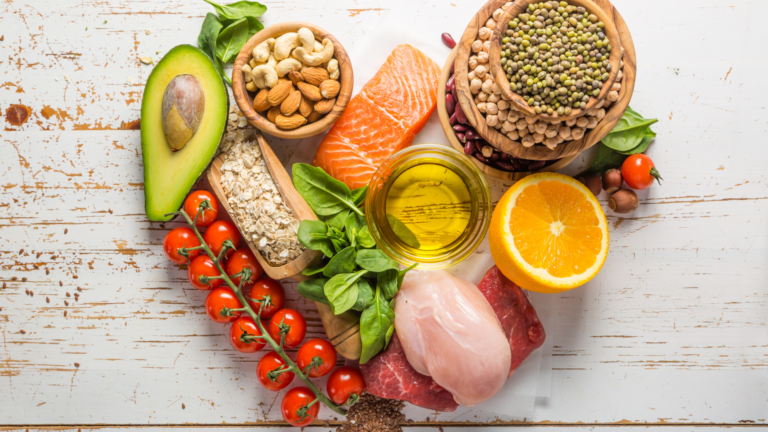We’ve all heard of mindfulness, but have you been introduced to mindful eating? This approach is about bringing all your senses to the table, being present in the moment and really immersing yourself in the experience and enjoyment of eating. Mindful eating is about enjoying your food to the fullest as well as tuning in to hunger and satiety cues. This process teaches you to trust your body to naturally guide you on when, what and how much you need to eat.
What are the benefits of mindful eating?
Mindful eating can have many benefits.
- Quite simply, it’s a better way to enjoy food and life. It puts the focus on the present moment, allowing you to slow down and enjoy the experience of eating and the pleasure that food brings.
- It can help to identify behaviour patterns around food that you may want to work on improving. For example, if you find yourself eating more than you need to or eating when you’re not actually hungry at all leading to bloating or discomfort.
- Unlike dieting, mindful eating doesn’t rely on calorie counting, weighing food, or ‘banning’ of any foods, so it takes much less energy, and is a kinder way to treat ourselves.
Mindful Eating & IBS
We know that eating behaviours have an impact on IBS. Eating too fast usually results in not chewing food properly, swallowing more air while eating and eating too much all of which can worsen IBS type symptoms. Slowing down and eating mindfully not only assists with improved digestion from chewing properly (after all, digestion begins in the mouth) but it also reduces swallowed air and reduces overeating. All of which reduces pressure on the digestive tract and assists with managing IBS type symptoms like bloating.
Can mindful eating help me lose weight?
Mindful eating shouldn’t be thought of or used solely as a tool for weight loss as this would be missing the whole point. Our bodies are very clever, and if we learn to trust them, they can tell us when to eat, what to eat, and how much we need. Just like our body tells us when we need to go to the toilet or when we need to sleep, our body also tells us when it needs food too.
Mindful eating helps us find our natural ‘set-point’ – the healthy weight we can maintain comfortably, without restrictive eating or dieting. This natural set point may not be the number on the scales that we want it to be, or allow us to fit into the pair of jeans we wore 5 years ago. Instead it helps us find the healthy middle ground that is sustainable long term. This concept can take time to get used to, but an important aspect of mindful eating is body acceptance – appreciating our body for all that it is capable of and all it that does for us, not reducing it to just a set of numbers.
How do I eat mindfully?
Mindful eating skills don’t develop overnight. It can take practice and effort – particularly when starting out. Most of us aren’t used to really listening to our bodies and focusing on the act of eating. We’re often multitasking, rushing about and focusing on other things while we’re eating.
When first starting out with mindful eating, you may want to choose just one meal per day or just the first bite of each meal, to put the mindful eating steps into practice. Go at your own pace, and remember you don’t have to be an expert overnight.
Location
Location can be really important, if you are trying to break habits like non-hungry snacking or boredom eating.
- Choose one or two places in your home where you will eat. Make these pleasant and relaxing places, away from screens, devices and pressures of the day.
- When you eat, sit down, put your food on a plate (even if it is just a snack like a biscuit or a piece of fruit).
- Set the scene with nice lighting, flowers or music.
- If you are eating alone, you may like to listen to the radio, or a podcast, rather than in a quiet house.
Key mindful eating steps:
- Tune in: How hungry are you? Do you need a fortifying meal? A small snack?
- Consider satisfaction: What food will really satisfy you, on this day, at this meal? Do you want something warm? Crunchy? Savoury? Sweet? There is a big difference between being full and being satisfied, don’t fall into the trap of eating a food just because it’s ‘healthy’, if it’s not what you enjoy.
- Slow down: take smaller bites, chew well, really taste the food. Listen to your body and stop eating when you’re satisfied.
- Do not fear hunger: instead approach it with curiosity. Think about why and how your body is conveying this message.
- Smile between each bite: This creates a pause moment and helps the brain feel happy and content.
Tips for reducing non-hungry eating
Non-hungry eating is the eating we do for reasons other than physical hunger (e.g. because the food tastes good, because it’s a meal time, because others are eating, because we’re bored, or upset, or anxious, or feeling ‘empty’ emotionally).
First off, non-hungry eating is normal and okay. We all do it! But we don’t want it to be your only tactic. Think of other strategies that you can also use for times when you are bored, stressed or anxious as well as food. Some ideas may include:
- Going for a walk
- Calling a friend
- Gardening
- Cleaning out a drawer
- Research travel / holiday plans
- Make a cup of tea and read a book
- Menu planning / recipe research
- Watching your favourite TV program
- Listening to a podcast or guided meditation
Ideally you want to stop eating when you are comfortably full and before you start to feel overfull. If you find that you are eating past the point of satisfaction try:
- Stopping once you’ve eaten half of the meal, put your cutlery down and ‘scan’ your body for fullness cues. How much room is left? Are you still hungry? Are you still enjoying the meal? Or are you now eating just because the food is there? Often we are trained to finish our plate – remember you have the choice to stop if you are already full.
- Serving up ¾ of your normal amount. You can always go for seconds if you’re truly hungry. If your plate looks empty, then consider using a smaller plate so it looks visually full.
Final Thoughts
I like to remind myself that eating should be pleasurable before, during and after eating. Incorporating mindful eating into your toolbox is a great way to help reduce your IBS without restricting your diet further. Reaching out to an IBS dietitian can also help reduce the issues that come with IBS.







